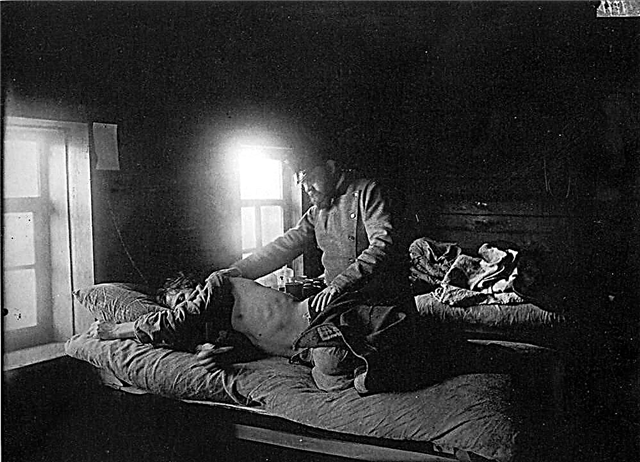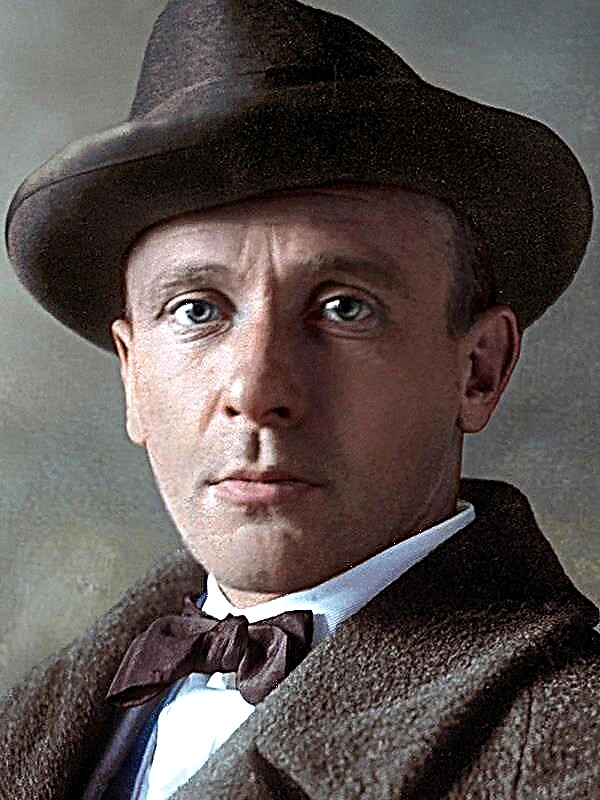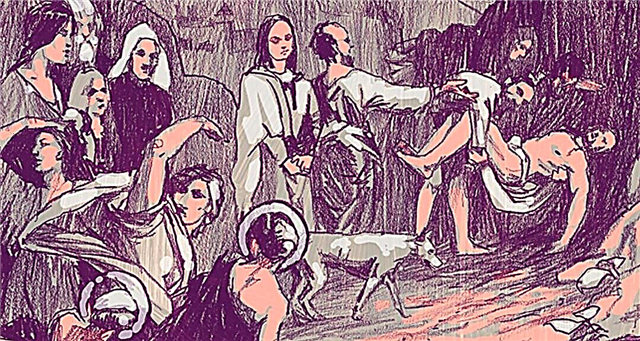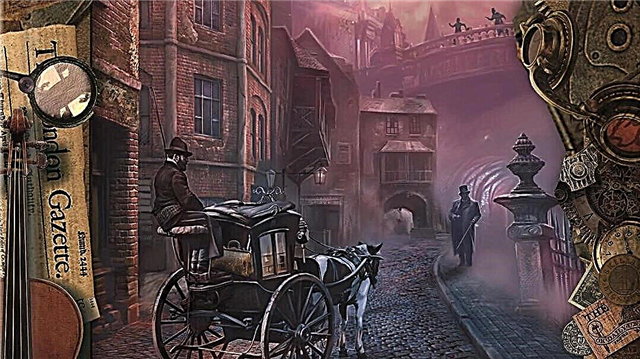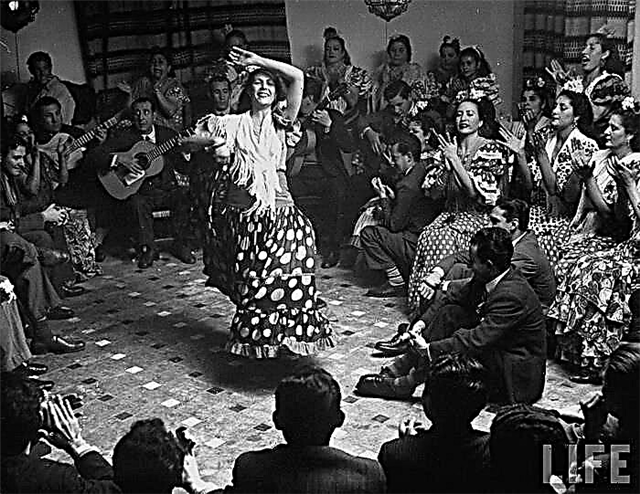Lucy Snow lost her parents early, but she was lucky with loved ones who did not leave the girl to the mercy of fate. So, often Lucy lived in the house of her godmother, Mrs. Bretton, an old widow and sweetest woman. Mrs. Bretton had a son, John, who, however, did not pay any attention to Lucy's age. Once, another inhabitant appeared in the Bretton house - a six-year-old, out-of-years-developed girl, Polly Home; her father went to Continent to dispel grief after the death of his wife. Despite the great age difference, a tender and loyal friendship was made between Polly and John.
Eight years have passed. Lucy entered the place of either a servant or a companion to an elderly lady; she lost sight of the Bretton family by this time. When her mistress died, Lucy remembered the words she heard somehow that young and poor English women could get a good job on the Continent, and decided to hit the road, for her life in her homeland promised most likely to be monotonous and joyless. Lucy Snow did not stay long in London, where she got for the first time in her life, and a few days later she went up to the deck of a ship going to Europe.
On the ship her fellow traveler was another young Englishwoman, Miss Ginevra Fenshaw. This brisk, sprinkled with French words person spent several years in European boarding houses and now went to continue her education at Madame Beck's boarding house in Villetta; Ginevra’s parents were by no means wealthy, and her uncle and godfather Monsieur de Bassompierre paid for her teaching. The purpose of Lucy's trip was also the capital of the Kingdom of Labaskur, the city of Villette, in which Brussels is easily recognized.
In Willette, Lucy knew no one and nothing; at the prompt of a young Englishman, she went to look for a hotel, but lost her way and found herself at the door of the house with the sign "Madame Beck's Pension for Girls." The time was later, and the girl decided to knock to get an overnight stay here, and if she was lucky, she also got work. The hostess of the guesthouse, who was crazy about all English, with the exception of the Protestant faith, immediately took Lucy a bonna to her children. Madame Beck was very benevolent, but when Lucy went to bed, unceremoniously examined her things and took a cast from the keys to the girl's work box. As time has shown, Madame Beck was a real Ignatius Loyola in a skirt: amiable with everyone so that in no case would anyone be restored against herself, she compensated for the external softness with relentless secret surveillance; life in her boarding house was arranged according to the Jesuit principle of strengthening the body and weakening the souls of the students so that the latter would become easy and meek prey of the Catholic clergy.
Soon, Madame Beck relieved Lucy of her duties as a Bonn and appointed an English teacher. She liked the new position, and she coped with it perfectly. Other teachers were nothing particularly remarkable; Lucy had no friendship with any of them. However, among the boarding school teachers there was one exception - the cousin of the boss, literature teacher Monsieur Paul Emanuel. He was a Corsican in appearance and short in stature, a man of about forty, hot-tempered, jaunty, sometimes annoyingly demanding, but at the same time extremely educated, kind and noble in his soul. For a long time he was the only representative of the stronger sex who was admitted to the pupils of the boarding house, but over time, the second appeared - a young English doctor, Mr. John. The noble appearance and pleasant treatment, the doctor touched the heart of Lucy Snow, his company began to give her sincere pleasure; and the hostess of the boarding house, although it was not her first youth, seemed to have some hope for him. Dr. John himself, as it gradually became clear, was deeply indifferent to one of the wards of Madame - the same Ginevra Fenshaw, whom Lucy met on the way from England.
Ginevra was very nice looking and knew very well what she wanted; but she wanted to marry a wealthy man, and, even better, titled. She responded to the courtship of the "bourgeois" of Dr. John with cold mockery - it would have been, because she was passionate about a man of the highest secular (secular whip and hang, according to Lucy) Colonel de Amal. No matter how Lucy tried to explain to Ginevra the difference between the colonel’s blinded emptiness and the high nobility of the doctor, she did not want to listen to her. Ironically, Lucy had to somehow play the role of Colonel de Amal - on the day of Madame Beck's name, a holiday was held in the guesthouse, the highlight of which was a performance staged by the students under the guidance of Monsieur Paul. Monsieur Paul almost forced Lucy to play a secular gentleman, a happy rival to a noble bastard; Lucy's role was deeply disgusting, but she dealt with her magnificently.
Soon after the holiday, it was time for the holidays. All the inhabitants of the guesthouse parted, and Lucy remained left to her own devices. In long thoughts, the feeling of complete loneliness in the world grew stronger in her; the feeling grew into mental anguish, and Lucy fell ill in a fever. As soon as she had the strength to get out of bed, she got out of the guesthouse and went half-delirious and wandering the streets of Villetta without purpose. Having entered the church, she suddenly felt an insurmountable need to confess, as Catholics do in difficult times. The priest listened attentively to her, the Protestant, but, amazed by the rare sincerity of words and the depth of the confessor's experience, did not find words of comfort. Lucy does not remember how she left the church and what happened to her next. She woke up in bed in a cozy unfamiliar house. But only at first glance the house was completely unfamiliar - soon Lucy began to discern individual objects that she had already seen somewhere; she did not immediately realize that she had seen them as a child in Mrs. Bretton's house. Indeed, it was a house called the Terrace, where Mrs. Bretton and her son John, the doctor we knew, lived in, in which Lucy did not recognize her childhood friend. It was he who picked her up, lying without feelings on the steps of the church. Great was the joy of recognition. The next weeks, Lucy spent in Terrace in friendly communication with the dear Mrs. Bretton and her son. Among other things, she talked to John Lucy about Ginevra, trying in every possible way to open his eyes to the unworthy object of his love, but for the time being, John remained deaf to her exhortations. He was convinced of Lucy's correctness only when he saw in a concert that Ginevra and his friends were loving his mother and obviously taunting her. Lucy, it's time to return to the guesthouse. John promised to write to her and kept his promise. In his letters, the flame of feelings did not shine, but their even warmth warmed.
A few weeks later, Lucy and Mrs. Bretton and John again went to the concert. Suddenly, in the middle of the show, “Fire!” and the panic began. From the crush, John saved a young lady whom the crowd pushed aside from the man accompanying her. Both turned out to be English, and not just English, but long-standing, but not immediately recognized, familiar to our heroes - Polly Home, now Countess de Bassompierre, and her father, who inherited the count's title and this name, along with a solid fortune from his French relative. This accidental meeting, in fact, put an end to the tender friendship of John and Lucy. The long-standing affection between John and Polly broke out with renewed vigor; a little time passed and they got married. These were people whose whole life is a series of bright moments, not overshadowed by too much suffering. Lucy Snow did not belong to such people.
Meanwhile, the relationship between Lucy and Monsieur Paul has changed dramatically. They became warmer, calmer; Lucy realized that the literature teacher’s pickiness, often annoying her, stemmed not from the absurdity of his character, but from the fact that he was not indifferent to her. In short, they became friends. This friendship, which threatened in the end to end in marriage, caused serious concern for Madame Beck, who, in fact, herself was not averse to becoming Madame Emanuel, and their entire family clique. A real conspiracy was drawn up to prevent the possible destructive marriage of the good Catholic, Monsieur Paul, to a heretic. The conspirators, being Catholics, acted in a very strange way from the point of view of a normal person. The priest, father Silas, the same Jesuit to whom Lucy once confessed, told her the story of Paul Emanuel. In his youth, Monsieur Paul was in love with Justine-Marie, the daughter of a prosperous banker. But since by that time his own father had burned out on some dark deals, the parents of his lover rebelled against marriage and forced the girl to go to the monastery, where she soon died. Keeping, despite everything, faithful to his love, Monsieur Paul Emanuel took a vow of celibacy, and when Father Justine-Marie also went bankrupt, he began to spend all his earnings on the maintenance of people who broke his happiness. He himself lived modestly, did not even keep servants. This story of selfless nobility could, of course, ward someone off from a desire to connect fate with Monsieur Paul, but not Lucy Snow.
Seeing that the plan failed, the family clique resorted this time, it would seem, to the right way to upset an unwanted marriage. Using the selfless nobleness of Monsieur Paul, they planned to send him to the West Indies for three years, where after the ruin the relatives of his bride left some lands that could bring income, provided that they are taken care of by a faithful steward. Monsieur Paul agreed, all the more so as his confessor Father Silas, one of the inspirers of the clique, insisted on this. In anticipation of the breakup, Lucy and Monsieur Paul swore an oath to each other after three years to unite their destinies.
In parting, Lucy received a royal gift from a noble groom - with the help of wealthy friends, he rented a house for her and adapted it for school; now she could leave Madame Vek and start her own business.
The separation lasted a long time. Paul often wrote to Lucy, but she did not lose time, worked tirelessly, and soon her boarding house became quite prosperous. And now, three years have passed, this fall Paul should return from exile. But, apparently, it is not Lucy’s fate to find happiness and tranquility. For seven long days the storm raged over the Atlantic until it broke all the ships that fell into its power into chips.

